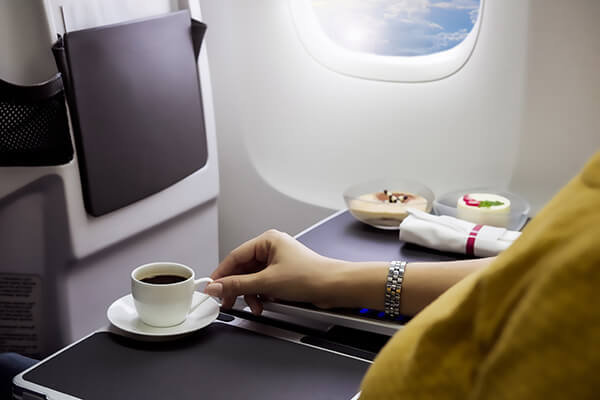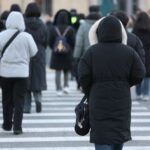Many travelers struggle to adjust to time zone changes after long-distance flights. Medically, we refer to this issue as jet lag, which occurs when individuals experience decreased concentration, impaired judgment, insomnia, anxiety, and headaches upon arriving at their destination. It’s frustrating to waste time feeling fatigued instead of enjoying the trip. So, is there a way to adapt to local times like the locals do?
What Causes Jet Lag?

Jet lag is a natural phenomenon caused by the mismatch between your body’s internal clock and the local time at your destination. The greater the time difference and the more your day-night cycle is flipped, the harder it becomes to adjust. Generally, symptoms are more severe when traveling east. For example, traveling eastward from South Korea to North America—including the United States, Canada, and Hawaii—makes adjusting more difficult.
Adjusting to Local Time in Advance

It’s beneficial to gradually change your sleep patterns two to three days before your trip. If you are going east, try going to bed and waking up at least one hour earlier. Conversely, if you are traveling west, aim to stay up and wake up one hour later.
Utilizing Light Properly

You can also use light to your advantage. When traveling to the U.S., try to get exposure to light as early as possible in the morning. If you’re heading to Europe, aim for late afternoon light exposure. While at your destination, engage in outdoor activities during the day. Research shows that exposure to natural light during the day in a new time zone can help reduce fatigue caused by jet lag.
Sleeping on the Plane?

If you arrive at your destination during the day, get enough sleep on the plane. After you land, avoid taking a nap and instead spend time outside to help regulate the secretion of melatonin, the hormone responsible for sleep. If you arrive at night, limit your sleep on the plane to no more than two hours.
Avoid In-Flight Meals

Since airplanes are confined spaces and require long periods of sitting, overeating in flight can make digestion difficult. This can leave you feeling completely drained upon arrival. It’s generally recommended to avoid in-flight meals. Research has shown that consuming less food on the plane makes adapting to a new time zone easier.
Eat Breakfast After 16 Hours of Fasting

Humans have what’s often called a stomach clock that helps regulate meal times and impacts sleep patterns. This clock follows a 16-hour cycle. The idea is to fast—except for water—for 16 hours, then have your first meal in sync with the local breakfast time. After that, go to bed at the local evening hour. Many travelers have found this method highly effective and recommend it for those particularly sensitive to jet lag.
Sleep Deprivation Therapy

Have you heard of sleep deprivation therapy? This treatment method, used for individuals with sleep disorders, maximizes drowsiness to induce deep sleep, pushing patients to extreme levels of fatigue. While it may seem extreme, many people utilize this method for quick adjustment when traveling across time zones with an eight-hour difference or more.
Taking Sleep Aids

If you frequently travel for work or struggle with adjusting to time changes, consider getting a prescription for melatonin. Melatonin is a hormone that regulates sleep and biological rhythms in the brain. Unlike the sleep deprivation method mentioned earlier, melatonin helps adjust your sleep rhythm naturally. Taking an appropriate dose before bedtime, a few days before your trip, or upon arrival at your destination is advisable.
Why Melatonin Helps With Jet Lag

Melatonin’s effectiveness in combating jet lag is linked to sunlight exposure. Sunlight in the morning reduces melatonin secretion from the brain’s pineal gland, while darkness at night triggers its release, promoting restful sleep. In countries like the U.S., melatonin is classified as an over-the-counter medication and can be bought at drugstores or convenience stores. However, in South Korea, it is a prescription drug and requires a doctor’s approval. The good news is that a single dose on the first night after arrival is often enough—no need for daily use.
Be Cautious with Caffeine Intake

Caffeine consumption can also affect the speed of your adjustment to a new time zone. Drinking wine or coffee during the flight can negatively impact your adaptation to jet lag. Excessive drinking can lead to dehydration, while too much coffee can disrupt sleep. Additionally, it takes longer to recover when your body is dehydrated, so it’s best to drink plenty of water instead of alcohol and coffee during the flight.















Most Commented